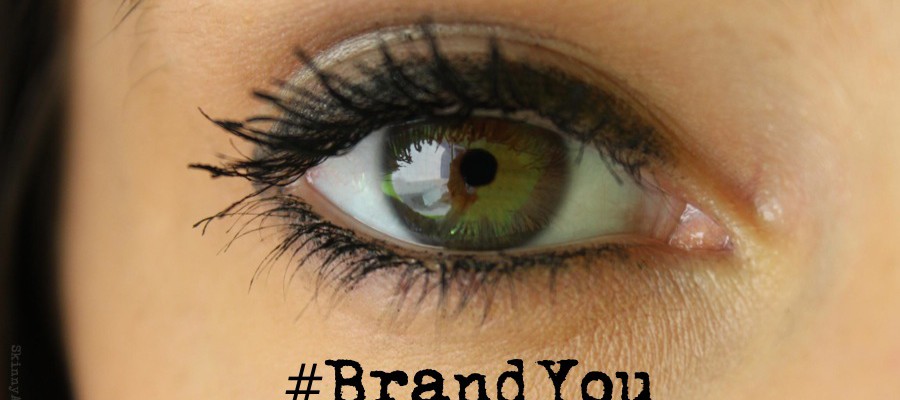Great article! Branding is definitely one of those aspects of an art career that I find myself at times resistant to :)…
I particularly resonate with the part about connecting to and clarifying who your audience is – and who they’re not. It seems like having a clearly defined idea of ‘my audience’ allows us to create our artistic selves more accessibly, and ironically makes us more attractive to anyone and everyone! Whereas if we try to be ‘everyone’s writer/artist/musician,’ we’re more likely to end up ill-defined and murky…
Great stuff :)
I think you’re right Daniel, branding is too often one of those annoying buzzwords that gets thrown about by people who wear a lot of suits and ties, but branding really is something that’s important to think about for any type of creative artist.
As Angela mentions in the post, creating a personal brand is (or at least should be) something that is deliberate. Not something that’s fake and stuffy, but something that we should really think about. How do we want our audience or clients to see us? What parts of ourselves and our work do we want to share and what parts do we want to keep to ourselves?
If we don’t think about these things in advance, it’s a lot more difficult for our audiences to know what to expect. Musicians and artists in the past have learned that when you go against your audience’s expectations (i.e. your established brand) they can actually feel betrayed and turn against you (think Dylan at Newport).
Now of course the real trick is to create a brand that still has enough wiggle room to change as you grow and evolve as an artist. Although you want to be consistent with your audience, you don’t want to be completely trapped by your public persona either.
Daniel- me too :) It’s funny how resistant I, and many of my artist friends have been to branding. It can feel like a frustrating waste of time- time that should be spent making art, or making money! But in truth, the process of branding is both an act of artistic creation and business development.
Drew, that is the trick! I have avoided branding myself- because I didn’t want to get boxed in- but I forget how important limitations are. A friend of mine always says that if you have scattered focus, you have scattered results. Time to focus on what I want, and how I can bring value to my community- and buckle down on my brand.
That’s a great way of looking at it Angela. You’re right, creating a brand does kind of force you to focus your energies in a certain direction (at least for now!)
I know that one thing that I’ve always struggled with personally is how much of my “experimental” side projects do I reveal and when, knowing that many of them are little more than curiosity gone wild. But I do think its important to find a way to focus your efforts and let go of competing distractions once you know what direction you want to go.
Like so many artists, I create art every day and have done so since I was a young child, which ultimately, like many of us, has become a part of who we are. I, like you, have an artistic muscle memory so to speak, like that of which an athlete or musician holds from early years of practicing. Whether I am working on a painting, drawing, writing or sculpting for my cake boutique, it’s a need that is worked on routinely, however there is another side that I work on, the business end of things. I am thankful everyday, because I have been in business with my husband for over 30 years which also has equally become muscle memory and which also has allowed me to feed myself and create at the same time. What the ins and outs of owning a business has taught me is that you have to wear many hats and two of those major hats are marketing and branding oneself. It is very true that there is a fine line of branding, almost like the line that an actor or actress has to be wary of in order to not dance on the grounds of being typecast. I have found that one really great way to lesson the role of typecasting is by doing a business plan, which in return forces you to go out and research who your target audience is, provide the demographics of your target audience and how much you plan to create and sell. This information will consequently help to set you on a clearer path to your goal of where you will want to be or at least plan to be in 6 months or maybe 1 or 5 years. I highly recommend that every artist take one marketing course. I’ve been lucky enough to have business basically forced upon me through centuries of family in business but creating has naturally come before for me, like you
I am now on a new adventure of ending my cake business so I can return to the love of painting and sculpting full time. I’m excited to venture back into my familiar grounds and again will treat my art as a business complete with business plan. Business and art together are the keys to success.
Best wishes and success to all of you artists out there.
Lorena.
[…] came across an article written by Angela Cross on the blog Skinny Artist in which she discusses artist brand. She defines […]
[…] The Brand of You Bringing it to an even more honest note than the above article, The Brand of You breaks down the fact that you’re human, and you’re going to change. Creating something that has the inability to change is not ideal, but something more organic that you can tweak over time is more natural. It also offers a reality that having a brand won’t make you successful, and the brand might not hit that sweet spot of the kind of work you’re doing/ the kind of artist you are or want to be. It’s a snap shot image that’s really one dimensional that leaves you, it’s creator, to fill in the rest of the story. A brand can’t live without it’s source of existence, which always comes back to you, the artist. […]
This was a great article to read. The value in branding is so substantial in resonating with an audience. Now that I come to think about it, the biggest names in music right now all seem to have a powerful brand image that sticks out. Think about Taylor Swift, Kanye West, G-Eazy, or even Miley Cyrus who experienced a brand evolution. They all have aspects about their music, personality and image that all fit together and represent a particular brand. It’s easily recognizable and communicated consistently, and that resonates in audiences who like them. The process of defining and strategizing how you’ll communicate that to the public should be taken deeply into consideration and not overlooked. Great post!!
I think you’re right Taylor that the most memorable artists are consistent with their image. Even if it changes over time, they find a way to maintain that image in a way that resonates with their audience. Of course everyone is not going to like them, and the artists that you mention certainly have more than their fair share of haters and doubters, but they don’t let it stop them from following their path. Thanks again for stopping by and sharing your thoughts with us!
Hey Angela, this is a great introduction to artist branding! This is the first time I come across Skinny Artist, I bookmarked it.
more realistic trails of human mind



